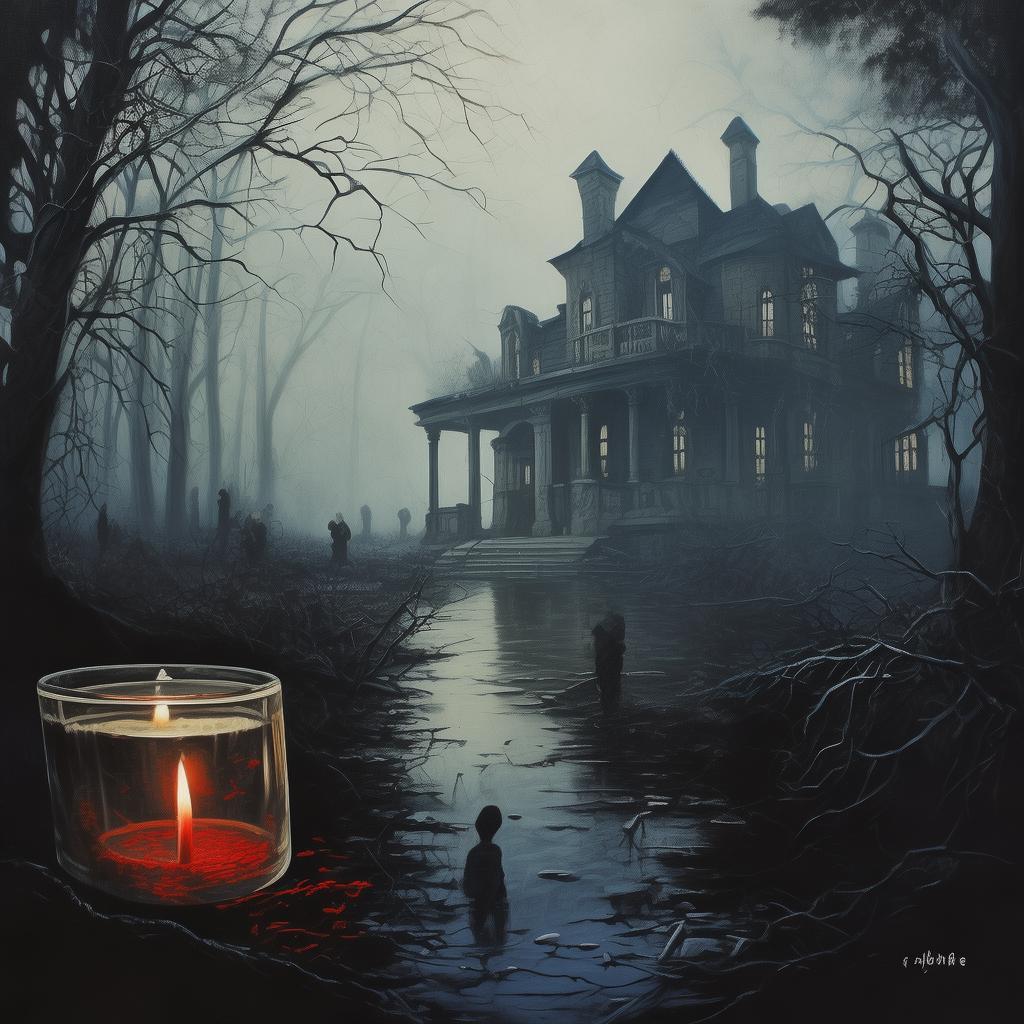The Lament of the Haiku Whisperer
The moon hung low in the night sky, casting long shadows over the dilapidated wooden house that stood at the edge of the village. The villagers spoke in hushed tones, whispering of the Haiku Whisperer, a ghostly figure that had been seen scribbling verses in the moonlight, each line a testament to unrequited love.
In the house, a young woman named Mei lay on her bed, her eyes wide with a haunting sorrow. She had heard the tales of the Haiku Whisperer, the spirit of a once-great poet who had fallen in love with a girl from the neighboring village, but their love was forbidden by the families' feuds. The poet had died a broken soul, his last act being the writing of a haiku that summed up his undying affection:
In the moonlit night,
I whisper my love to you,
But my heart is a ghost.
Mei's heart ached as she read the verses, for she was the girl to whom the poet had longed. She too was in love, but with a man from the rivaling family, a man who was forbidden to her by their parents' bitter enmity.

One night, as Mei gazed out the window, she saw a figure in the moonlight, the silhouette of a man, writing on a parchment. She knew instantly that it was the Haiku Whisperer, and she felt a strange connection to him, as if he were the only one who understood her pain.
The following days were a whirlwind of whispered meetings and secret glances. Mei and the Haiku Whisperer exchanged haikus, each line a piece of their souls. Mei's verses were filled with longing and hope, while the Haiku Whisperer's were tinged with a bittersweet melancholy.
One night, Mei gathered the courage to approach the whisperer, and they met in the ancient temple that loomed over the village. "You know," Mei said, her voice trembling, "I feel the same way about my own love. What can we do?"
The Haiku Whisperer looked at her with eyes that seemed to see right through her soul. "The only way to transcend this love is through poetry," he said. "Let us write a haiku that will bridge the divide between your hearts."
Together, they penned a verse that would echo through the ages:
In the stars' silent dance,
Your love and mine entwined,
A bond that defies fate.
But as the verse was completed, the Haiku Whisperer began to fade, his form becoming translucent, as if he were made of the same ethereal substance as the moonlight. Mei reached out to him, but he was gone, leaving behind only the haunting haiku that they had written.
The villagers began to speak of the love between Mei and the man from the rivaling family, and over time, their love grew and flourished, even as the families reconciled. Mei would often visit the temple, where she would recite the haiku, feeling the presence of the Haiku Whisperer.
And so, the legend of the Haiku Whisperer was born, a ghostly figure that lived on through the poetry that he had written. For as long as there were hearts that loved and souls that longed, the Haiku Whisperer would continue to whisper his tales of love in the moonlit night, a ghost of love that would never fade.
✨ Original Statement ✨
All articles published on this website (including but not limited to text, images, videos, and other content) are original or authorized for reposting and are protected by relevant laws. Without the explicit written permission of this website, no individual or organization may copy, modify, repost, or use the content for commercial purposes.
If you need to quote or cooperate, please contact this site for authorization. We reserve the right to pursue legal responsibility for any unauthorized use.
Hereby declared.









